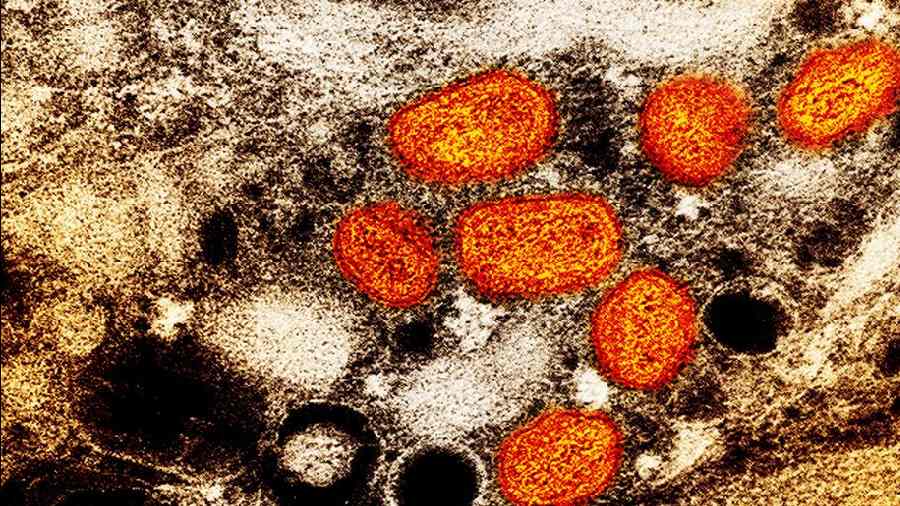Current monkeypox trends are something to feel optimistic about. Global infection numbers have been falling since August — but why?
In 2022, some 80,000 cases of monkeypox have been reported in 109 countries, resulting in 36 deaths. For most of these countries, this year's outbreaks were the first on record.
Monkeypox is an infectious viral disease caused by the monkeypox virus, which is related to viruses causing smallpox and cowpox.
At the end of August, new infection numbers started declining across the globe, and the trend has continued until today. New cases in the last week of October were 1,295, a 41% drop from the previous week, according to the World Health Organization (WHO).
To put that number into perspective, the number of weekly new cases reported globally was 7,477 during the peak of the outbreak in early August.
Why are infection numbers declining?
Vaccination and behavioral change in the risk population seem to be the main reasons for the decrease, Paul Hunter, a medical professor at the University of West Anglia in the UK, told DW.
The risk population Hunter is referring to is men who have sex with other men (MSM), which is the group that has seen the most cases over the course of the outbreak. Although we only have information about sexual orientation from a portion — around 26,000 — of the total cases, 87% identified as MSM.
Although Hunter said he doubts the numbers could rise again, he acknowledged it is still possible.
"Because the vaccine lasts a very long time, any future spread will be much lower and won't be as great as we've seen," he said. "That doesn't mean we won't see occasional ups and downs. But I don't think we'll see the big peak at least for several years."
The risk of getting monkeypox is low for most people, according to the UK's National Health Service (NHS) and the US-based Centers for Disease Control and Prevention (CDC). This, plus the lower risk of infectiousness in the risk population due to vaccination, helps explain the decline, Hunter said.
But the situation is not the same everywhere.
An unequal outbreak
The decline in new monkeypox cases has been most pronounced in the Americas and Europe. However, the two regions still reported the largest proportion of new cases worldwide in October — 88.7% in the Americas and 7.7% for Europe. Nearly half of the deaths reported in association with the outbreak have been in the Americas.
That would seem to imply the outbreak has been largely confined to the Americas and Europe — but experts say "not so fast." Members of the International Health Regulations (2005) (IHR) Emergency Committee handling the emergency response to the outbreak emphasized in a meeting late last month that monkeypox data from low-income settings is "largely lacking".
The committee said this lack of information in places like Africa in particular makes it hard to understand how many local people are infected with the virus as well as whether it's being transmitted by humans or animals.
According to the committee, low-income regions have little to no diagnostic capacity or access to vaccines and other treatments.
When the outbreak began this summer, aggressive vaccine campaigns were quickly implemented in high income countries seeing surges, like the US, rather than Africa.
Africa currently has no publicly available vaccines against monkeypox, according to Reuters.
The IHR is a legally binding international agreement between 194 countries aiming to tackle international outbreaks like this year's monkeypox's.
These regional inequalities, among many others, are why the IHR decided late last month to keep the current monkeypox outbreak a Public Health Emergency of International Concern after first being declared in late July.
Can we end monkeypox?
Before May, monkeypox infections were mostly limited to seven countries in Central and West Africa.
In these countries, the virus exists in rodents and monkeys residing in tropical rainforests. These animals can spread the virus to humans upon contact.
Officials say one of the key measures needed to prevent a future outbreak of monkeypox is to minimize this zoonotic transmission.
One way to achieve this could be the implementation of stronger restrictions on animal trade, according to the WHO.
As long as conditions remain ripe for zoonotic transmission, the disease "will always be there and we'll always get events where the virus jumps to humans," Hunter told DW.












